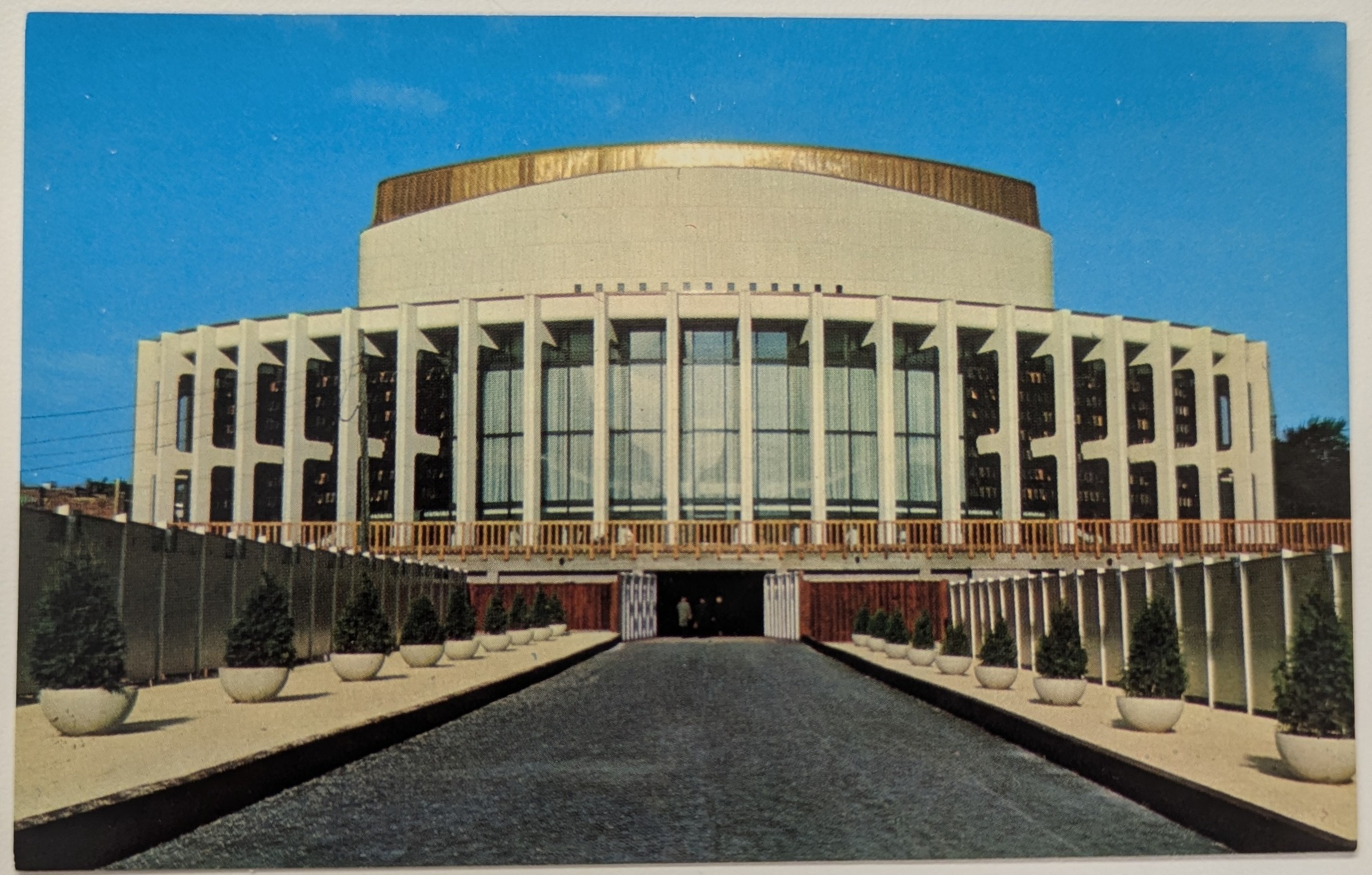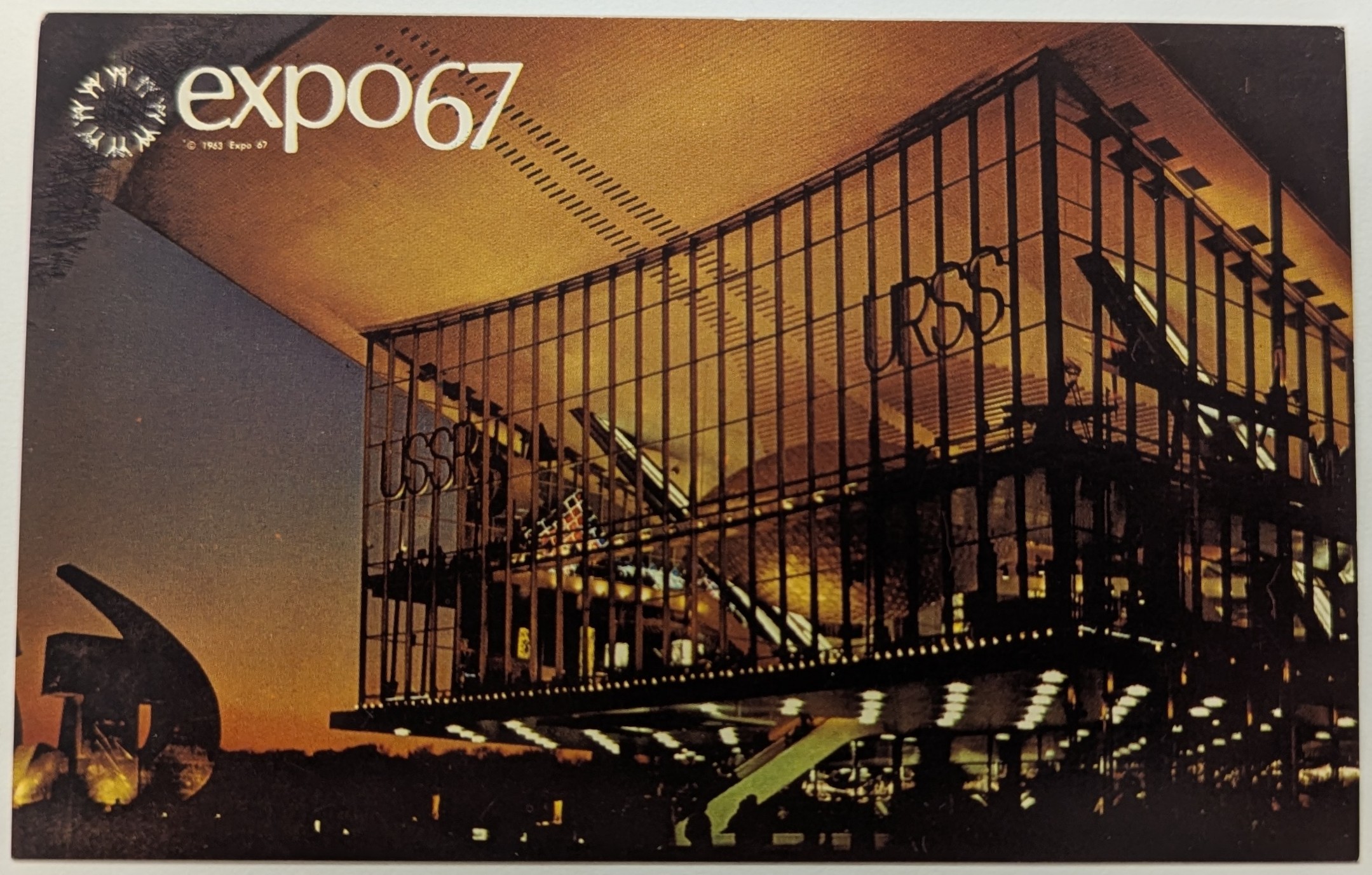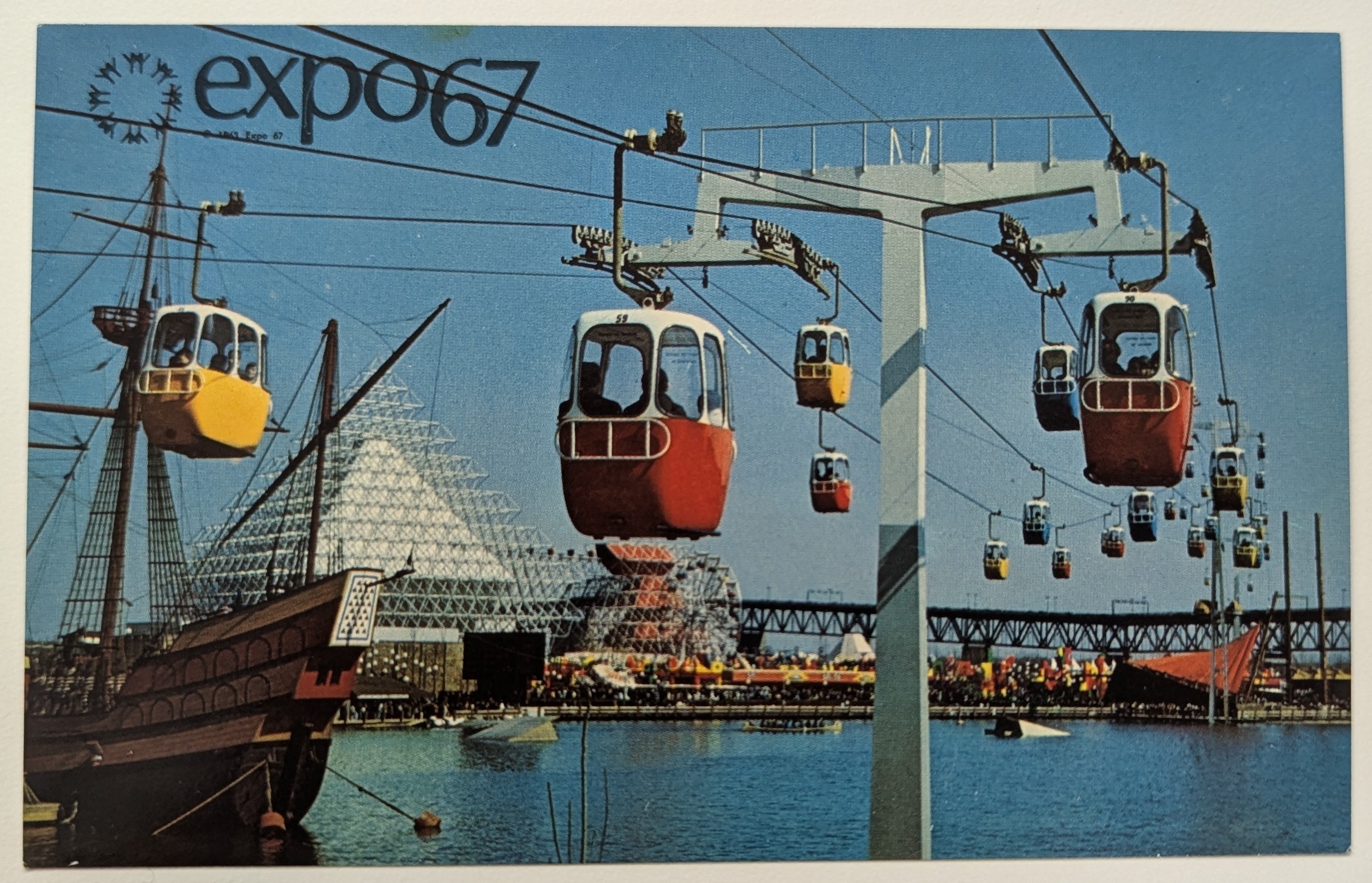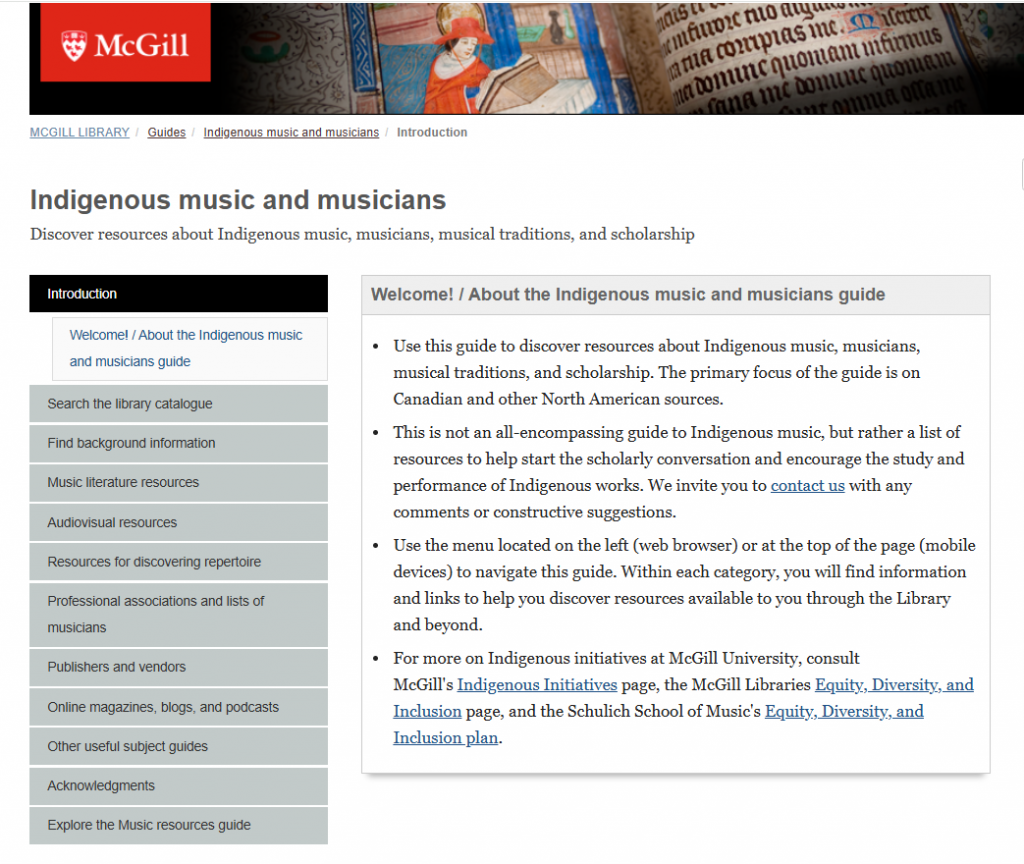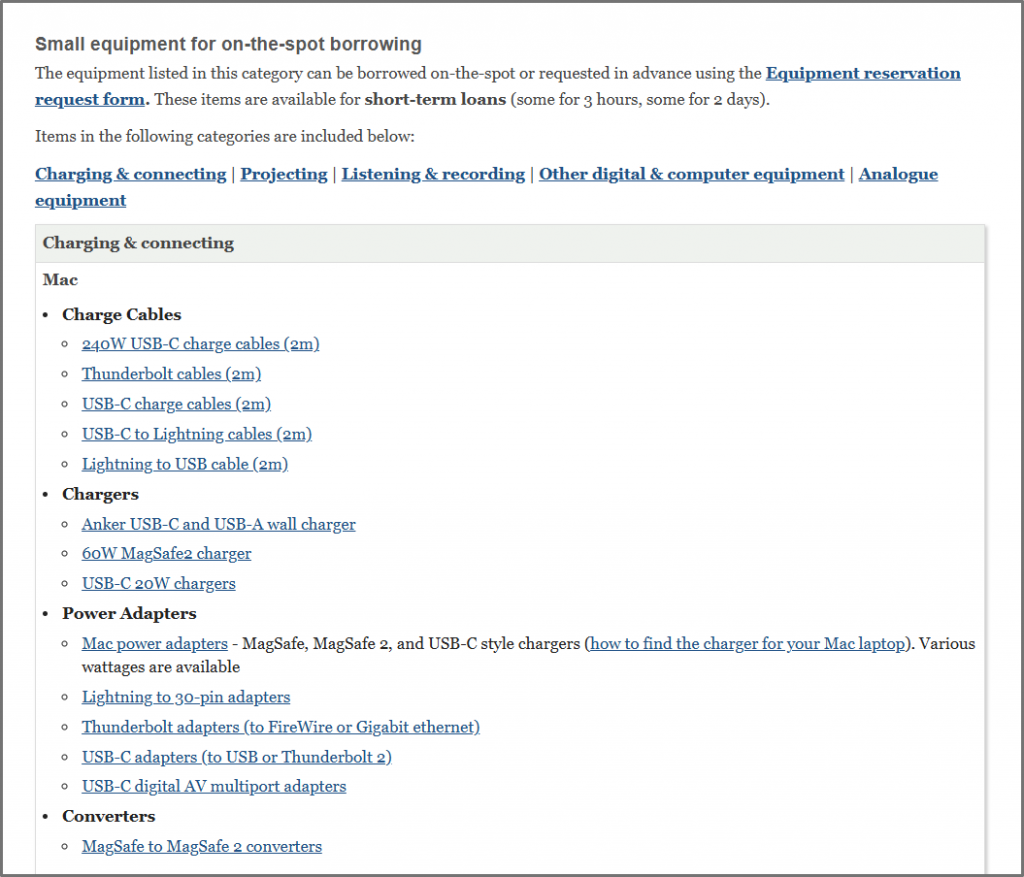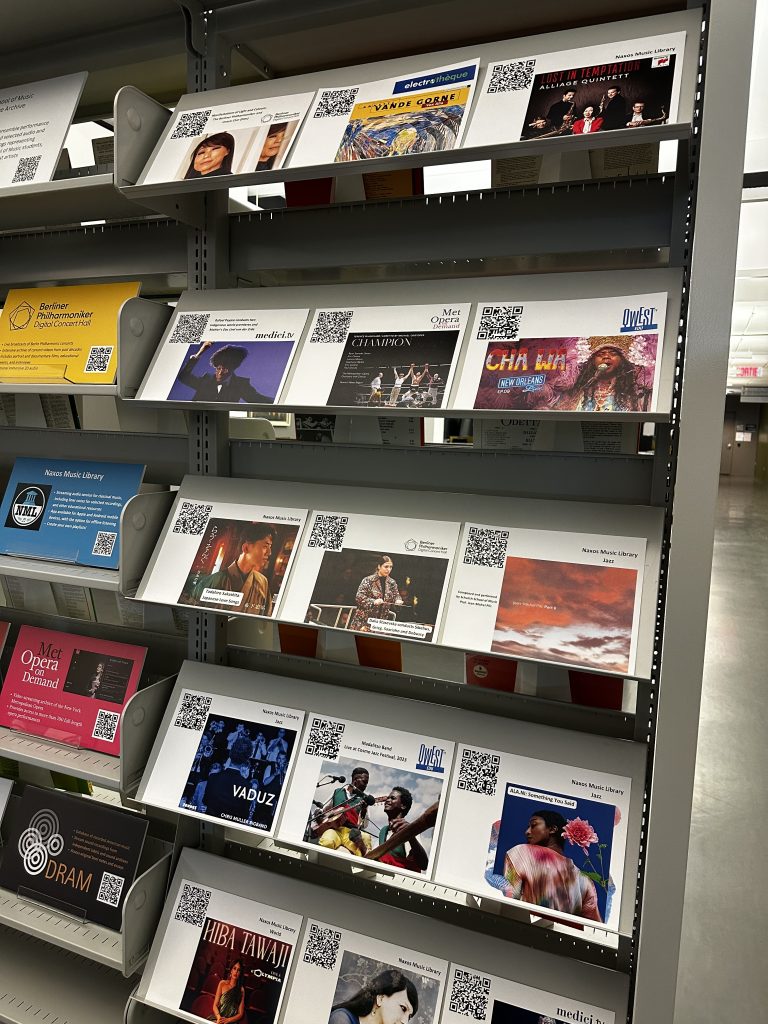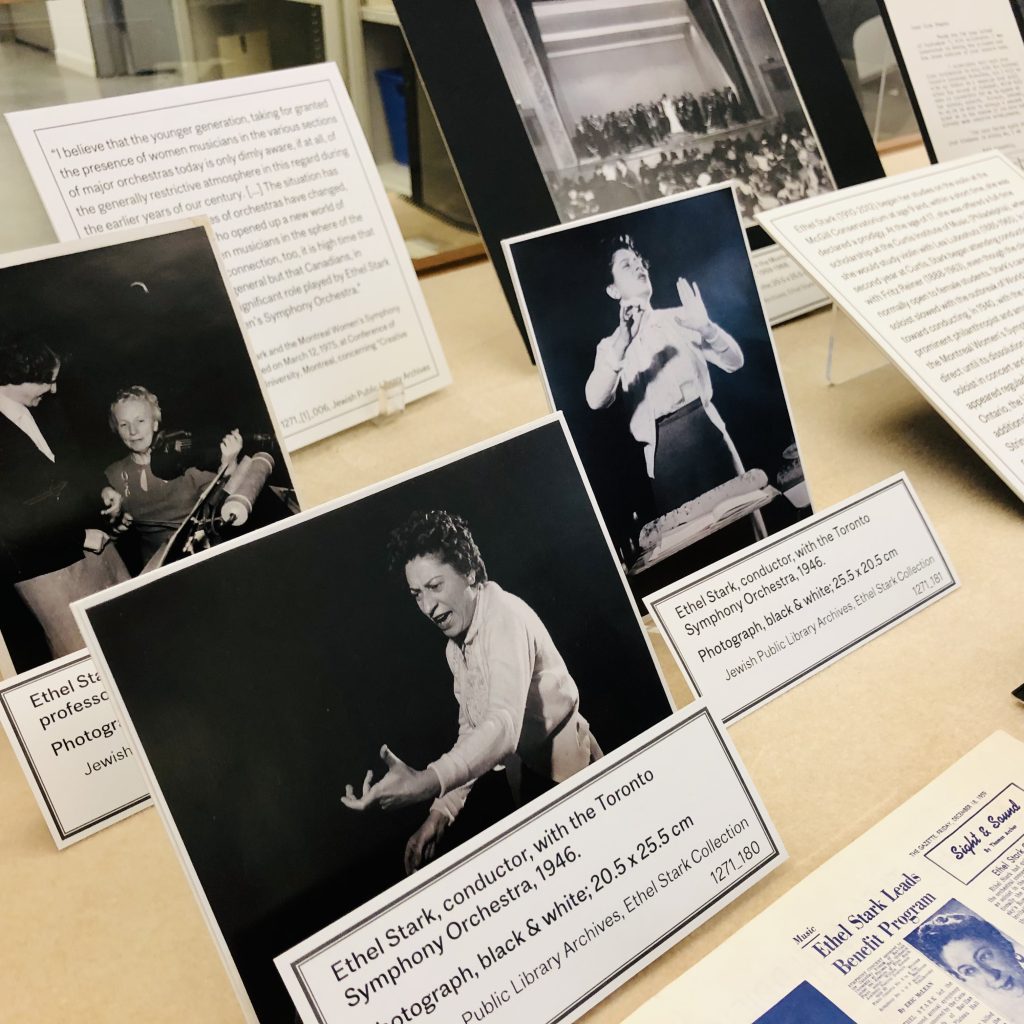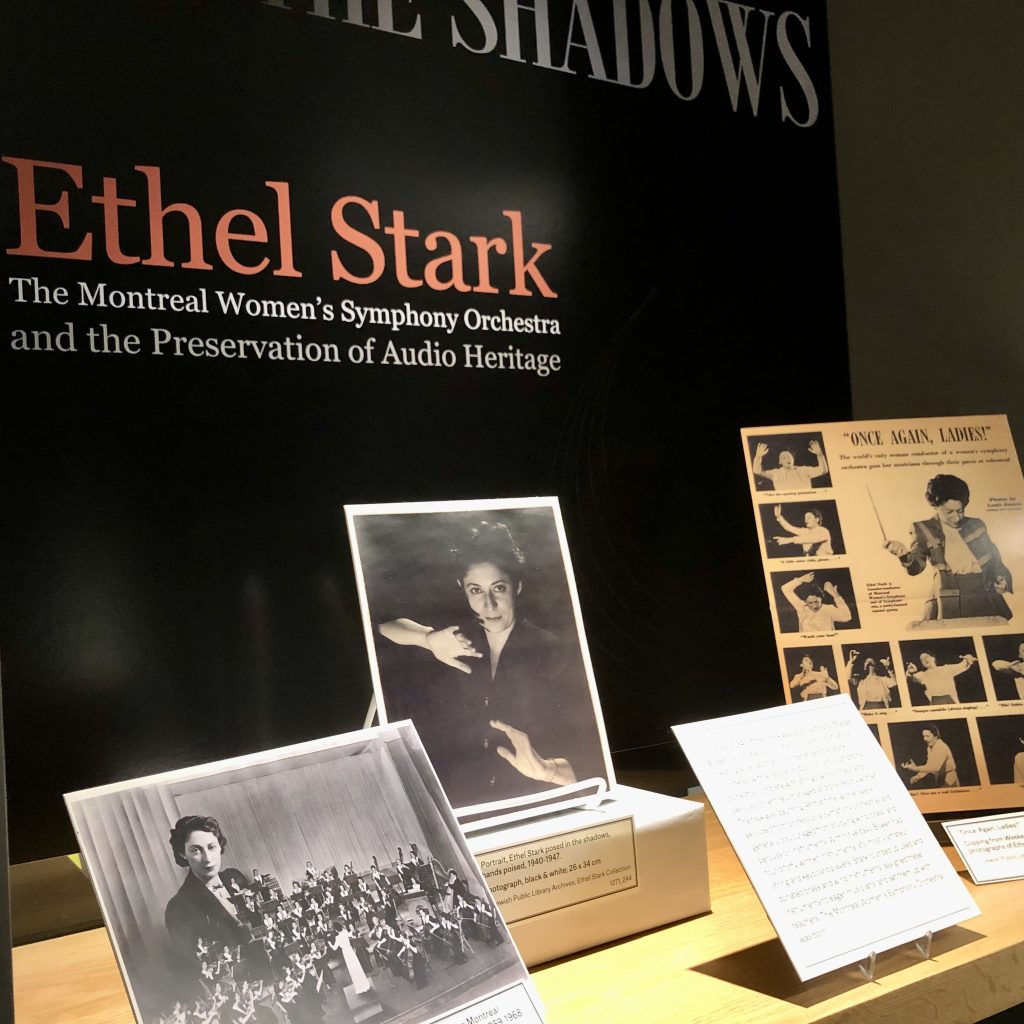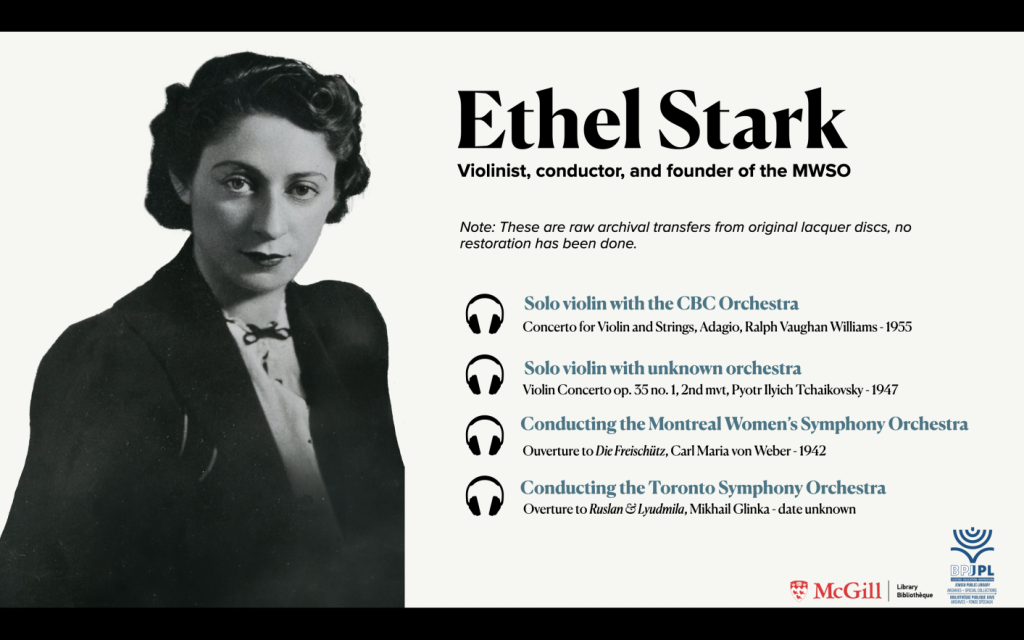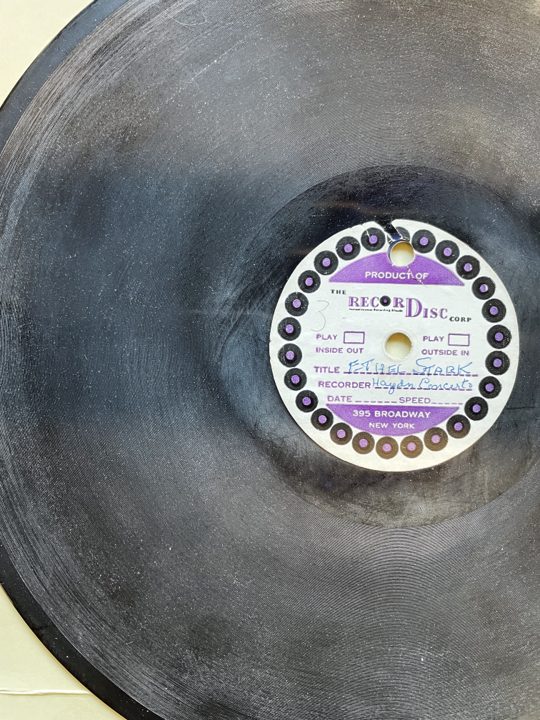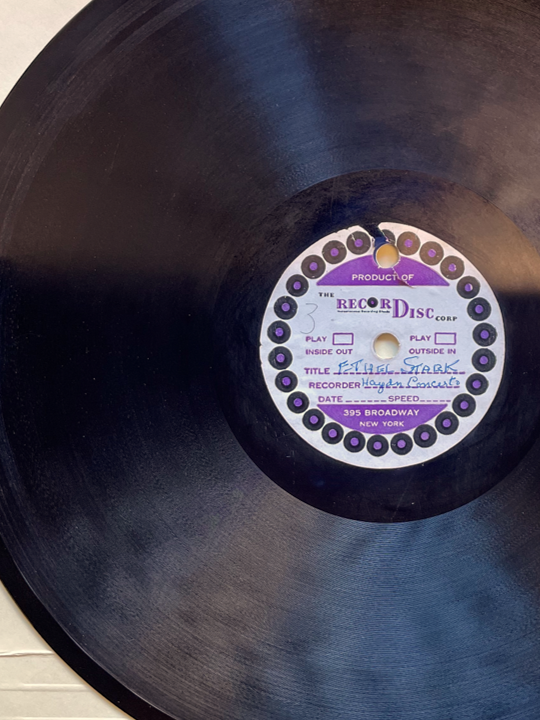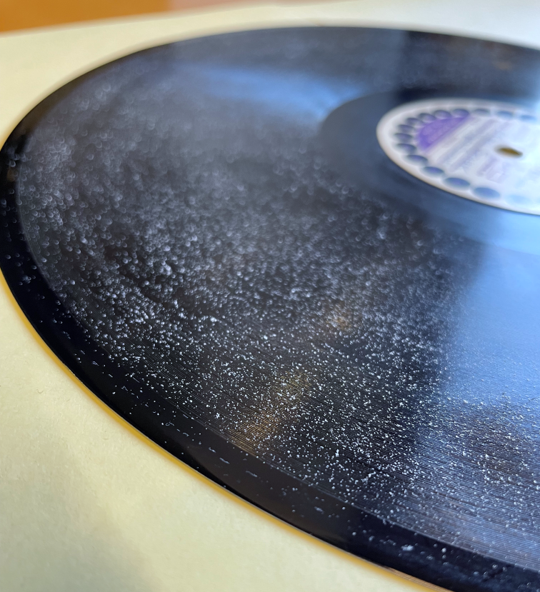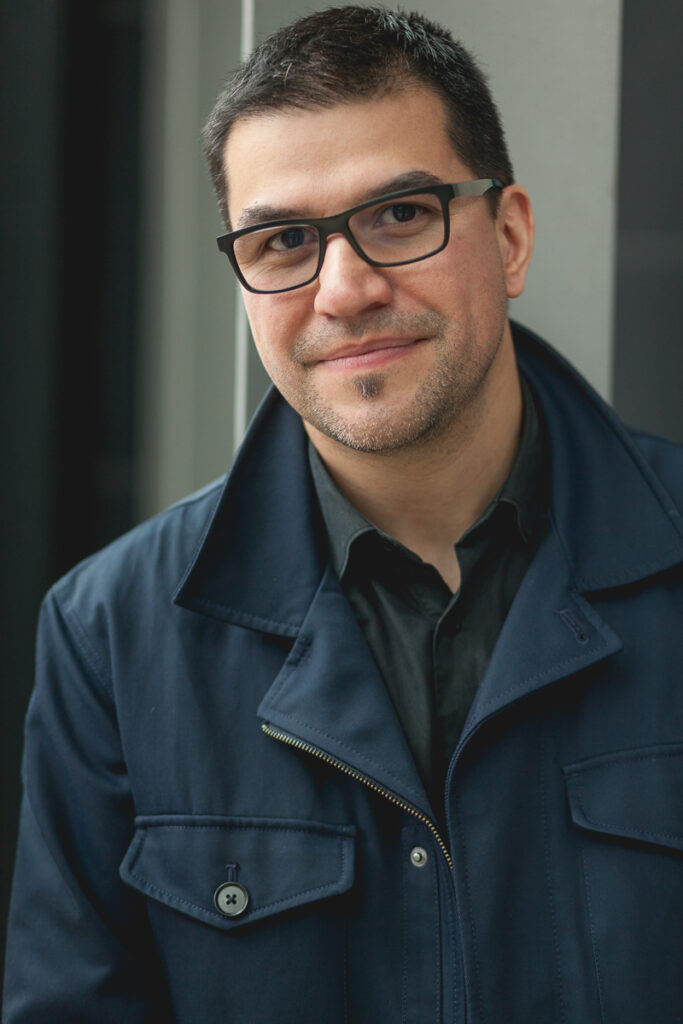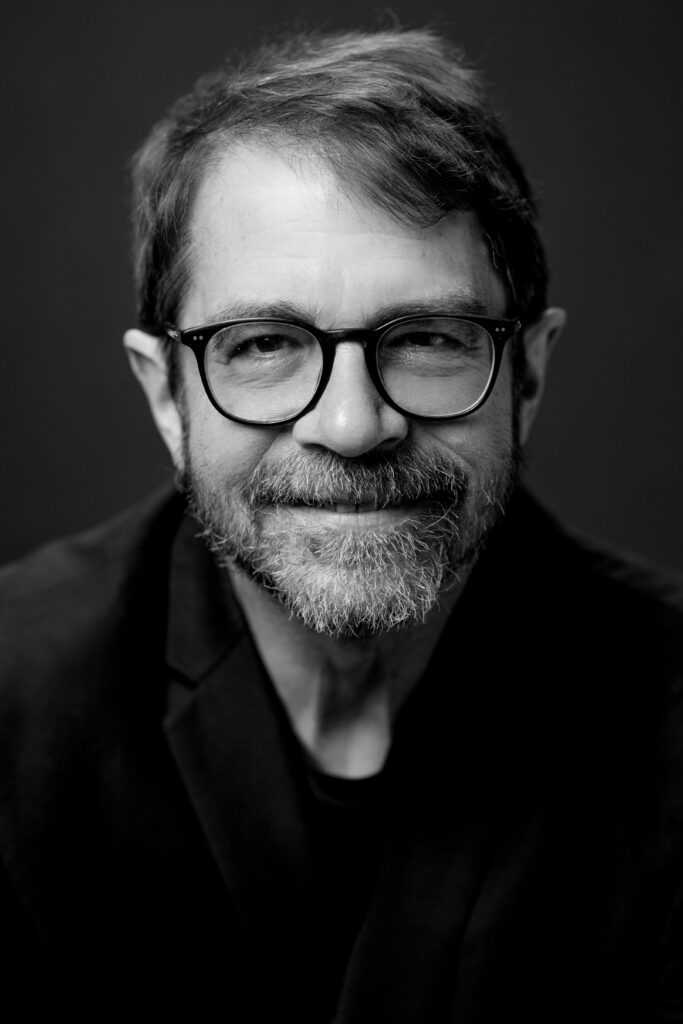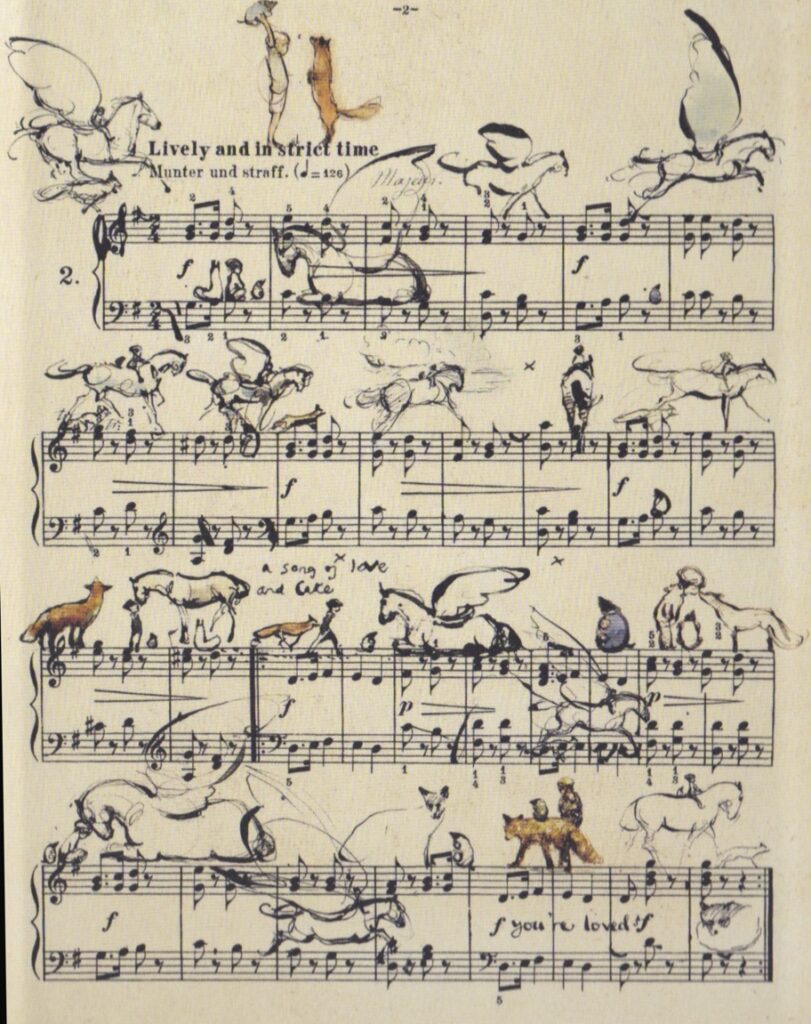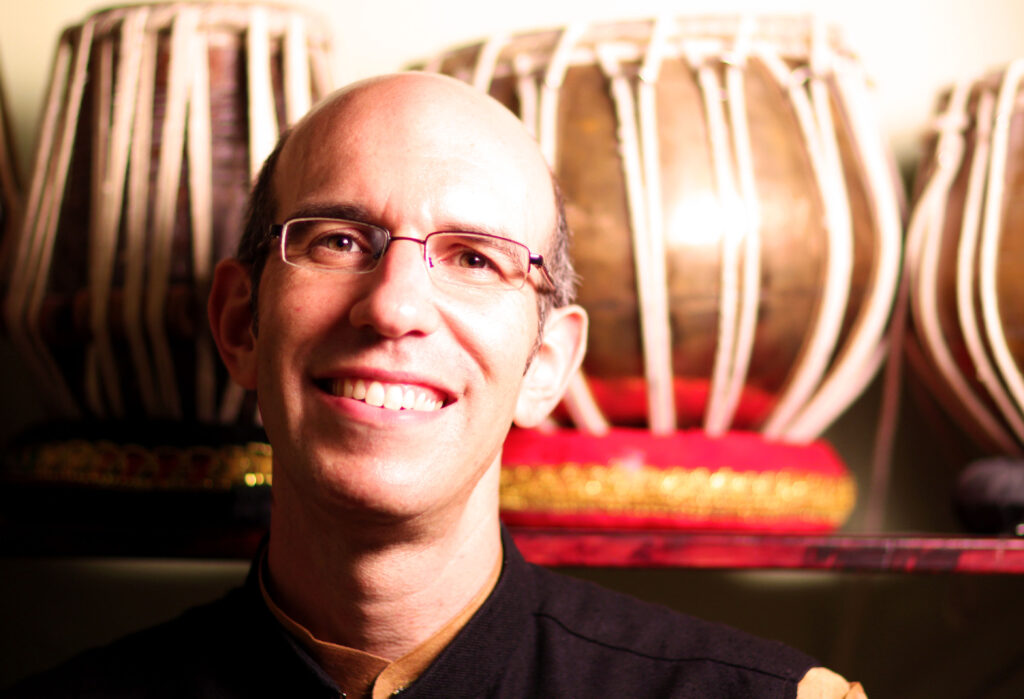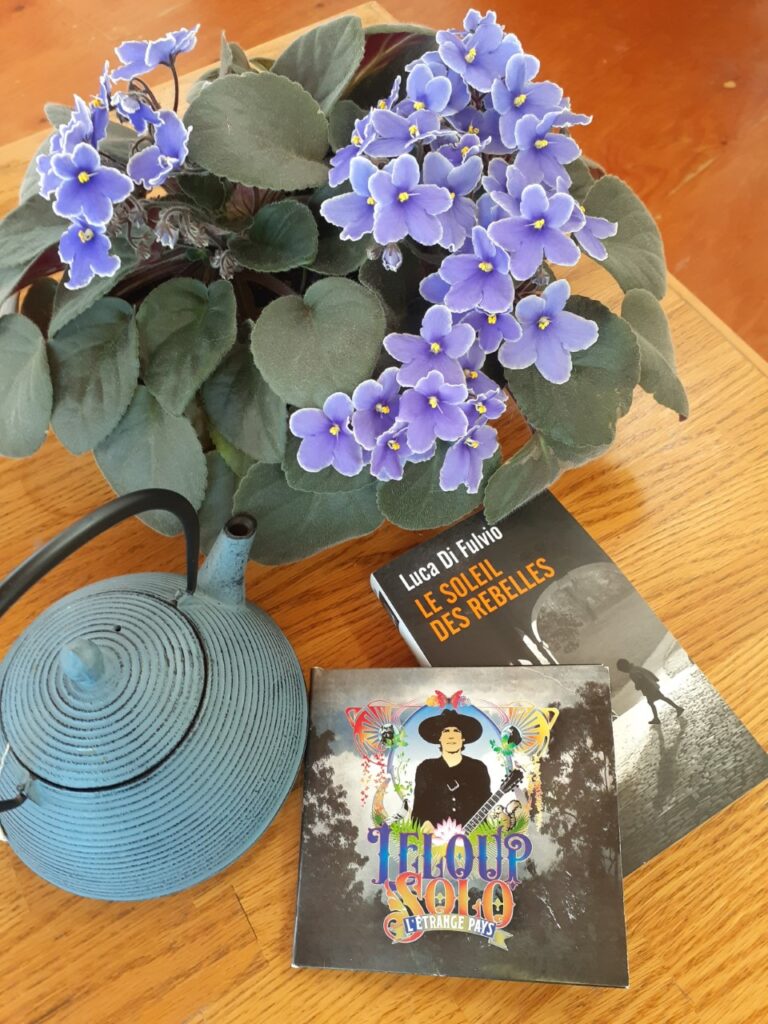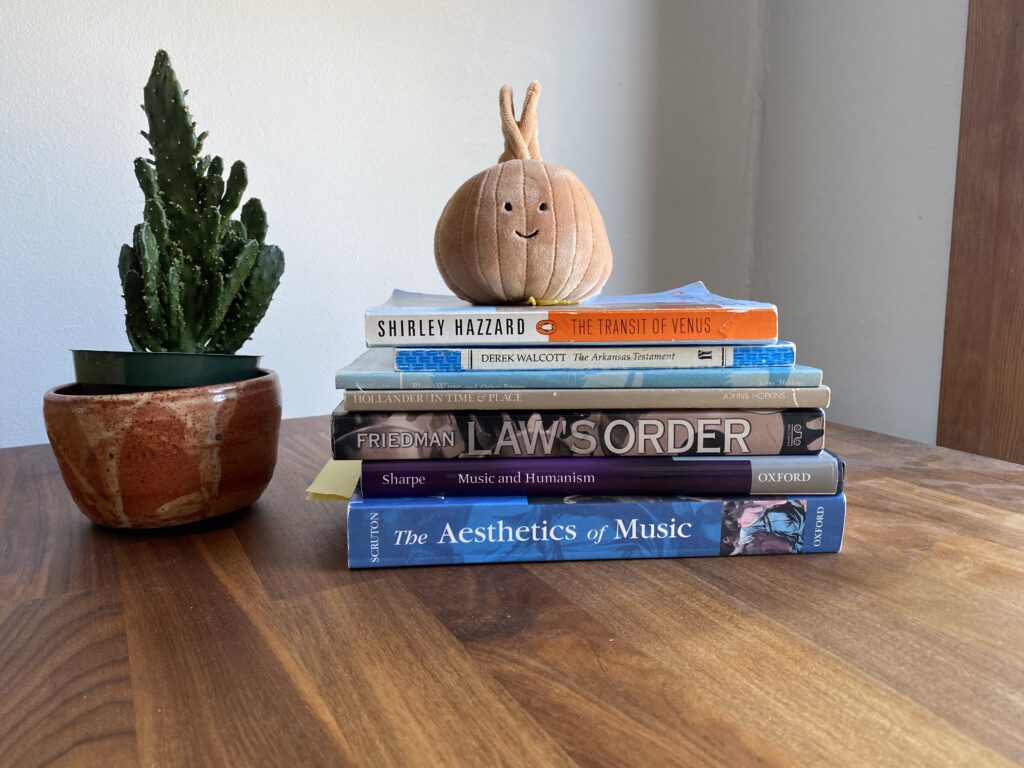Text and images by Setareh Rezazadeh.
This summer, in the back rooms of the Marvin Duchow Music Library, I had the opportunity to work on an archival processing project, where I described and organized textual records from the Yaëla Hertz Berkson fonds. When a collection is donated, the Library organizes and describes the documents in accordance with archival processing principles. The objective is to preserve the original order of the fonds, while ensuring that researchers can find relevant documents efficiently. Like many of the Music Library’s special collections, the Hertz Berkson fonds began as a set of boxes containing documents and objects; these materials are now well on their way to being organized, described, and rehoused in archival containers for long-term preservation. This project has been my inaugural trip within the realm of archives, and it has been a blast!
The donated collection comprises the archives of the late violinist Yaëla Hertz Berkson (1930-2014), as well as members of her family. Hertz Berkson was an Israeli Canadian violinist based in Montreal. Born in Tel Aviv-Yafo, Mandatory Palestine [Israel], she started learning violin at a young age from her mother, Atara Glickson Herz, concertmaster for the Palestine National Opera. Following studies with Mischa Mischakoff at The Juilliard School in New York, she moved to Montreal and integrated herself into the musical life of the city. Within five years of living in Montreal, she became the concertmaster of the McGill Chamber Orchestra (now Orchestre classique de Montréal), a position she held for over four decades. She helped establish the Hertz Trio, an ensemble that would perform for over 20 years and which included her brother Talmon Hertz (cello) and Dale Bartlett (piano). Together they would tour the U.S.S.R, England, and Canada. Within Canada they frequently performed in Albertan towns and cities, as Talmon was based in Calgary. Hertz Berkson also established herself as a prominent pedagogue in Quebec, teaching for over two decades at Conservatoire du musique de Hull (now Conservatoire de musique de Gatineau), as well as other conservatories in the province. Outside of her teaching studio, she was a regular faculty member at the National Youth Orchestra of Canada and KlezKanada.
While many documents in this collection pertain to her life as a musician here in Montreal, there are many strong ties to Jewish musical life in Mandatory Palestine. Through program notes and concert posters, a lot can be learned about musical trends both at home and abroad. Not only are there programs from performances Hertz Berkson had been a part of, but there are also many programs from those of her mother, Atara Glickson Herz. Glickson Herz studied in Leipzig in the early 1920s with Henri Marteau; after her studies, she returned to Mandatory Palestine where she performed opera, chamber music, and solo works. The collection therefore contains programs from Glickson Herz’s examinations at the Konservatorium der Musik zu Leipzig, her career in Tel Aviv, and performances she attended.
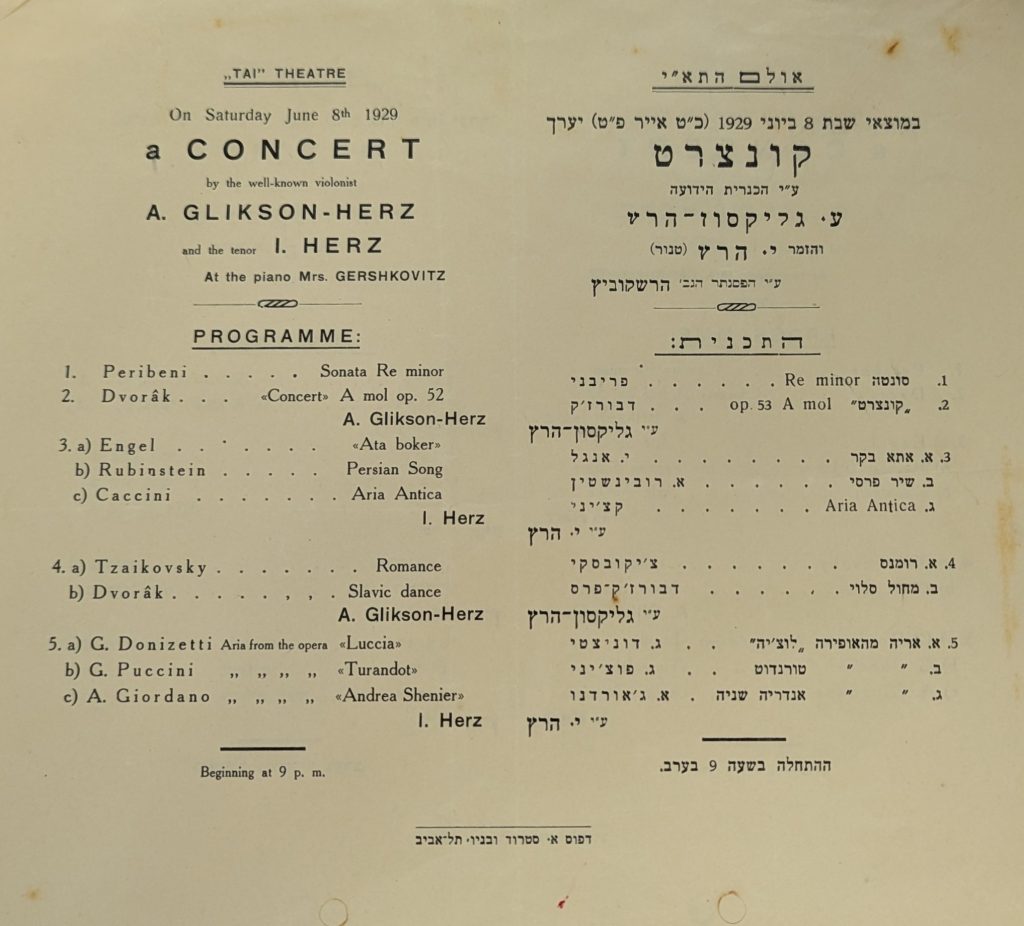
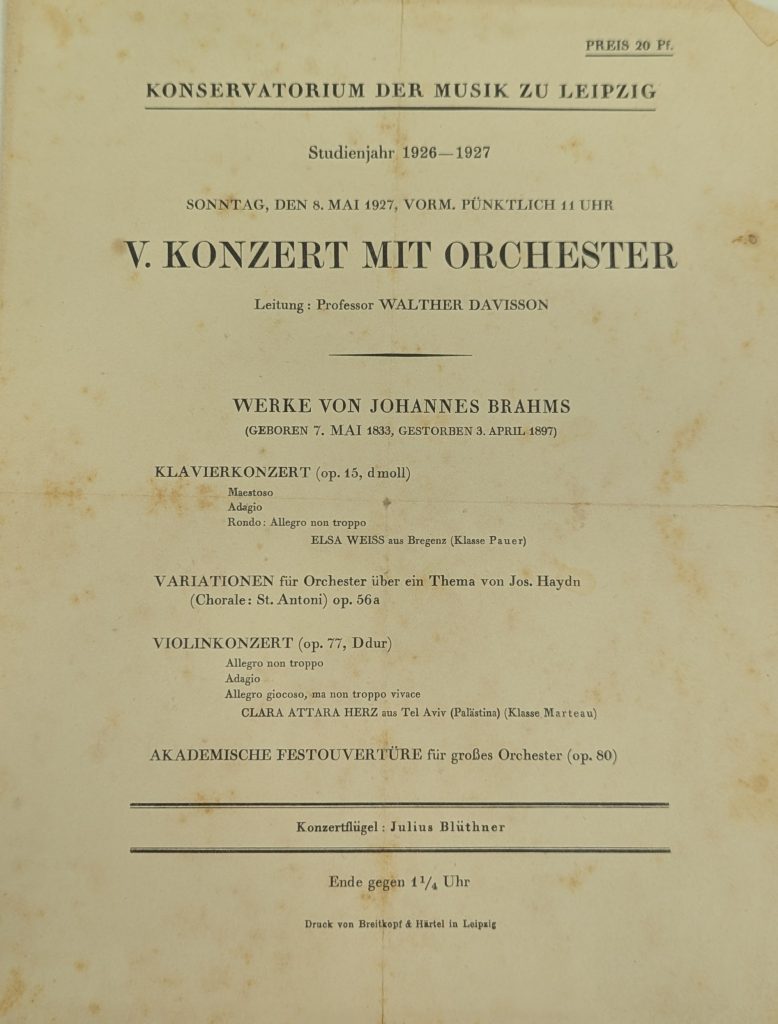
One of the unexpected joys of this project has been encountering ephemera from Expo 67 held in Montreal. Expo 67, officially known as the 1967 International and Universal Exposition, was a World’s fair held in Montreal from April to October 1967, the year of Canada’s centennial. As music was a prominent feature of the Expo, the McGill Chamber Orchestra had an opportunity to perform, and, as concertmaster, Hertz Berkson attended the Expo for both work and fun! In recognition of her position as concertmaster, she was featured in a magazine spread in the Montreal Expo 67 magazine.
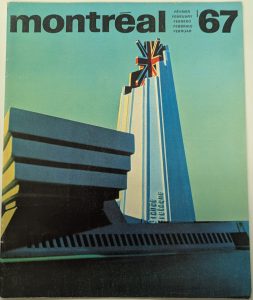
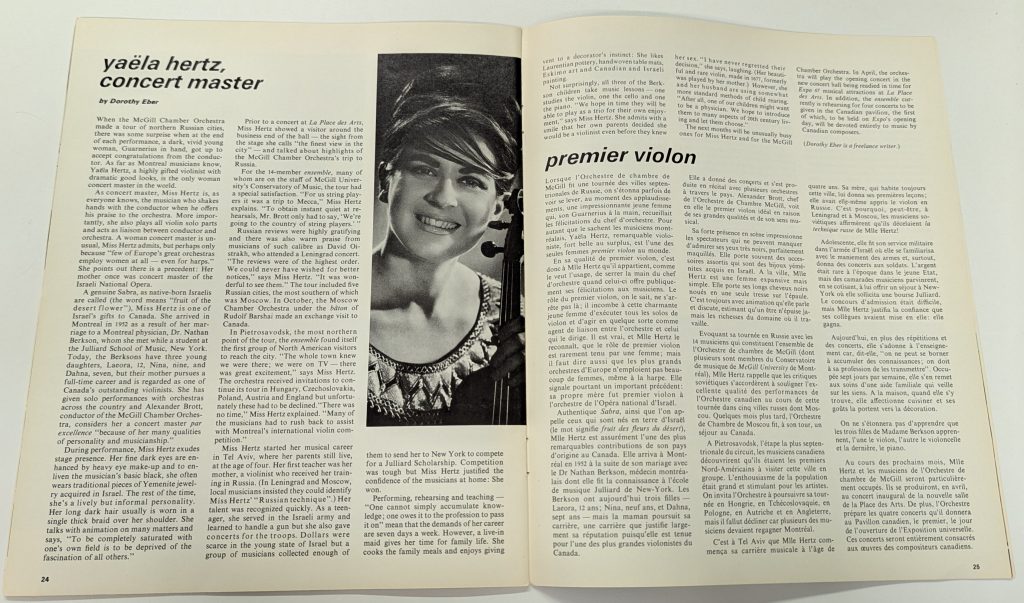
She also collected programs from other orchestral performances, the Expo passport, and many, many postcards of the various countries’ pavilions (Sousfonds 1, Series A3, File 008).
Three years later, Hertz Berkson went on tour with the Orchestre Symphonique de Montréal to Osaka for Expo 70, where she collected more programs and postcards when she was not performing.


Along with fascinating details about the World’s fair, there are many other souvenirs and mementos from her tours abroad with ensembles of which she was a member. Rather unexpectedly, this collection provides excellent insight into the destinations that attract touring orchestras, especially those touring in countries hosting the World’s fair and the U.S.S.R. As the Hertz Trio also toured regularly, there are many more documents pertaining to the organization of the trio’s performances abroad, in addition to the souvenirs from their travels.
This collection provides insight not only into Hertz Berkson as a person, pedagogue, and professional musician, but also into musical life in Montreal from the 1950s to the 2000s. Whether you are interested in learning more about prominent women musicians, the McGill Chamber Orchestra, the history of musical pedagogy in Quebec, or memorabilia like postcards, you will find fascinating discoveries in the Hertz Berkson fonds to support your research!
The Yaëla Hertz Berkson fonds, which contains textual and audiovisual archives as well as scores and pedagogical materials, is currently being processed by Music Library staff with the assistance of part-time student workers. An announcement will be made once the collection is available for public consultation.
Trésors d’archives à la Bibliothèque de musique Marvin Duchow : Fonds Yaëla Hertz Berkson
Texte et images de Setareh Rezazadeh
Cet été, dans les locaux de la Bibliothèque de musique Marvin Duchow, j’ai eu la chance de travailler à un projet de traitement d’archives, dans le cadre duquel j’ai décrit et organisé les éléments textuels du fonds Yaëla Hertz Berkson. Lorsqu’on lui fait don d’une collection, la Bibliothèque catalogue les documents reçus en suivant les principes de traitement des archives. L’objectif est de garder les éléments de la collection dans leur ordre original, tout en s’assurant que les chercheurs peuvent trouver facilement les documents voulus. Comme beaucoup de collections spéciales de la Bibliothèque de musique, le fonds Hertz Berkson n’était au début qu’un ensemble de boîtes contenant des documents et des objets. La majeure partie des éléments de la collection sont maintenant répertoriés et placés dans des conteneurs aux fins d’archivage à long terme. Ce projet a été ma première incursion dans le domaine des archives, et j’ai adoré l’expérience.
La collection est constituée d’archives de la violoniste Yaëla Hertz Berkson (1930-2014) et de membres de sa famille. Yaëla Hertz Berkson était une violoniste israélo-canadienne vivant à Montréal. Née à Tel-Aviv–Jaffa, en Palestine mandataire [Israël], elle a appris le violon très jeune auprès de sa mère, Atara Glickson Herz, premier violon de l’Opéra national de Palestine. Après avoir étudié auprès de Mischa Mischakoff à la Juilliard School de New York, elle s’est installée à Montréal, où elle s’est intégrée à la scène musicale. Cinq ans plus tard, elle est devenue premier violon de l’Orchestre de chambre de McGill (aujourd’hui l’Orchestre classique de Montréal), poste qu’elle a occupé pendant plus de quatre décennies. Avec son frère, Talmon Hertz (violoncelle), et Dale Bartlett (piano), elle a fondé le Hertz Trio. Pendant plus de 20 ans, ils ont effectué des tournées en URSS, en Angleterre et au Canada. Comme Talmon vivait à Calgary, ils se sont souvent produits en Alberta. Yaëla Hertz Berkson est devenue une pédagogue de renom au Québec, enseignant pendant plus de vingt ans au Conservatoire de musique de Hull (aujourd’hui le Conservatoire de musique de Gatineau), ainsi que dans d’autres conservatoires du Québec. Elle était également membre du corps professoral de KlezKanada et de l’Orchestre national des jeunes du Canada.
Si de nombreux documents portent sur sa vie de musicienne montréalaise, d’autres éléments de la collection témoignent de ses liens étroits avec la scène musicale juive en Palestine mandataire. Les notes de programme et les affiches de concert permettent d’en apprendre beaucoup sur les tendances musicales tant au pays qu’à l’étranger. On y trouve non seulement les programmes des concerts auxquels Yaëla Hertz Berkson a participé, mais aussi de nombreux programmes de concert de sa mère, Atara Glickson Herz. Celle-ci a étudié à Leipzig au début des années 1920 auprès d’Henri Marteau. Après ses études, elle est retournée en Palestine mandataire, où elle a joué des opéras, de la musique de chambre et des œuvres solo. La collection contient des programmes des examens qu’Atara Glickson Herz a passés au conservatoire de musique de Leipzig, des concerts qu’elle a donnés à Tel-Aviv et des prestations musicales auxquelles elle a assisté.


L’une des belles surprises de ce projet a été la découverte de documents éphémères de l’Expo 67. Officiellement connue sous le nom d’Exposition internationale et universelle de 1967, l’Expo 67 s’est tenue à Montréal d’avril à octobre 1967, année du centenaire du Canada. La musique occupait une place importante à l’Expo, et l’Orchestre de chambre de McGill a eu l’occasion de s’y produire. Yaëla Hertz Berkson s’est rendue à l’Expo à la fois pour le travail et pour le plaisir. Premier violon de l’orchestre, elle a fait l’objet d’un article dans le magazine de l’Expo 67 de Montréal.


Elle a également gardé les programmes d’autres prestations orchestrales, le passeport de l’Expo et de très nombreuses cartes postales des pavillons des différents pays (sous-fonds 1, série A3, dossier 008).
Trois ans plus tard, Yaëla Hertz Berkson a accompagné l’Orchestre symphonique de Montréal à l’Expo 70, à Osaka. Lorsqu’elle ne se produisait pas, elle en profitait pour recueillir d’autres programmes et cartes postales.


En plus des renseignements fascinants que contient la collection sur l’Exposition universelle, on y trouve de nombreux souvenirs rapportés par Yaëla Hertz Berkson lors de ses tournées à l’étranger avec les ensembles dont elle faisait partie. Cette collection offre ainsi un excellent aperçu des destinations qui attiraient les orchestres en tournée à l’époque, en particulier ceux qui se produisaient dans les pays hôtes de l’Exposition universelle et en URSS. Comme le Hertz Trio partait régulièrement en tournée, on y trouve de nombreux autres documents relatifs à l’organisation des concerts du trio à l’étranger, en plus des souvenirs de voyage.
Cette collection est une vitrine sur la vie personnelle et professionnelle de Yaëla Hertz Berkson, mais aussi sur la scène musicale montréalaise des années 1950 aux années 2000. Que vous vous intéressiez aux grandes musiciennes, à l’Orchestre de chambre de McGill, à l’histoire de la pédagogie musicale au Québec ou aux souvenirs (comme les cartes postales), vous y ferez des découvertes fascinantes utiles à vos recherches.
Le fonds Yaëla Hertz Berkson, qui contient des archives textuelles et audiovisuelles ainsi que des partitions et du matériel pédagogique, est en cours de traitement par le personnel de la Bibliothèque de musique, avec l’aide d’employés étudiants à temps partiel. Une annonce sera faite dès que la collection sera accessible au public.

